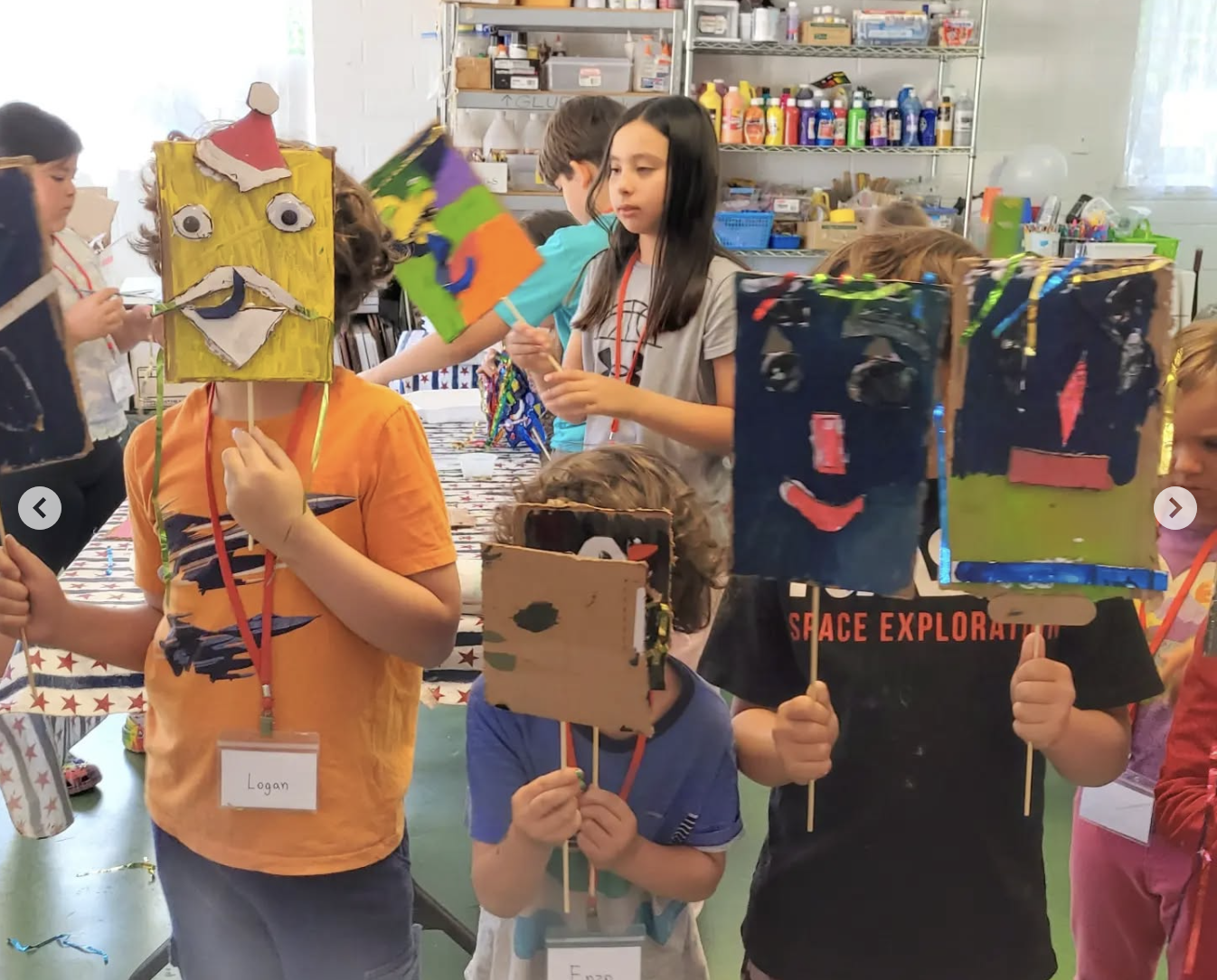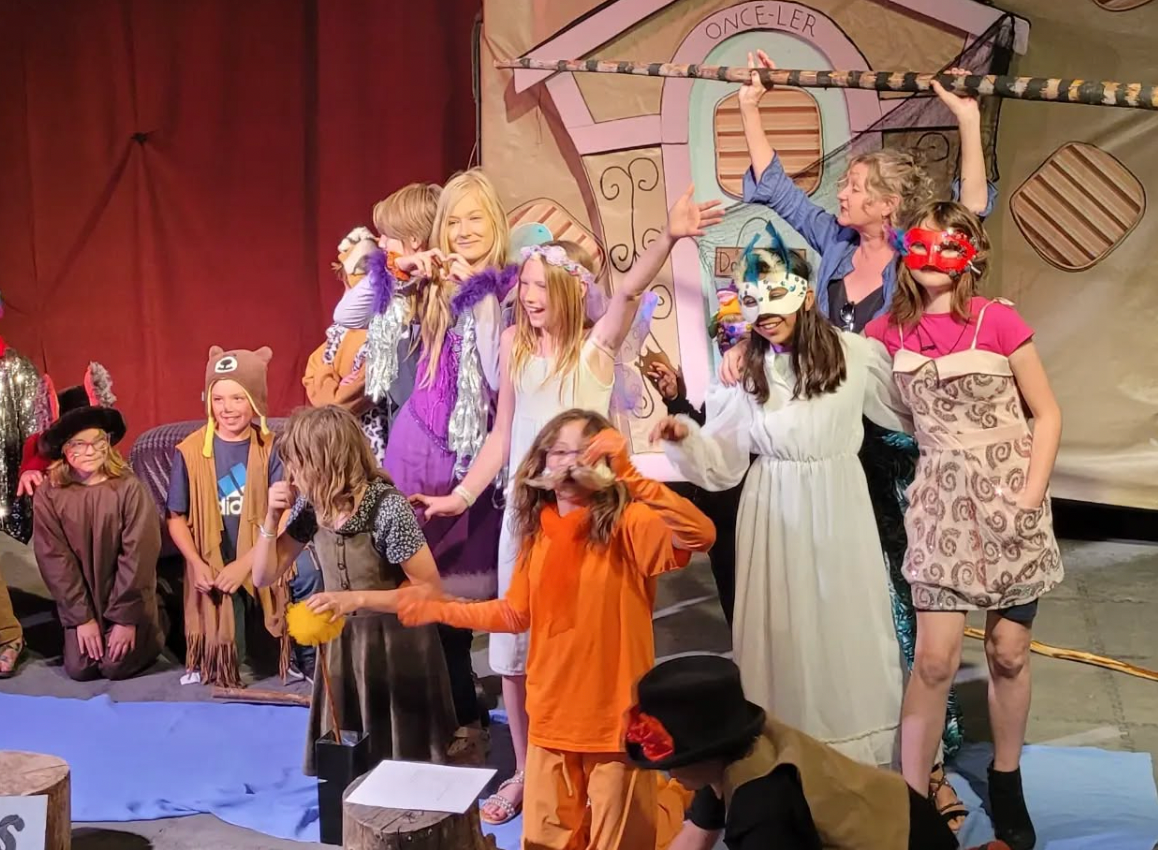Patagonia Creative Arts Association celebrates 25 years of building community
The Patagonia Creative Arts Association, founded in 1999, has become a vital hub for arts education, community engagement, and cross-cultural collaboration, recently expanding its free art programs through grant-funded partnerships.

Twenty-five years ago, a pair of Patagonia art lovers launched a fledgling nonprofit to advance their dream of helping to connect their community to the arts.
The Patagonia Creative Arts Association got its start in 1999, when Molly Phinny purchased a building and teamed up with her friend Gail Jacobson to create a space where their small community could gather and participate in all areas of the arts.
PCAA has grown over the years and is now responsible for running art programs in nearby schools. It helps to bring cross-cultural awareness and cross-border participation to the community.
This fall, PCAA was one of 18 area nonprofits that received a grant from the Santa Cruz Community Foundation. PCAA will use the funding to offer art classes in partnership with Nogales, Arizona’s Santa Cruz Training Program.
The program is another nonprofit that provides educational programs for children and adults with developmental disabilities. Through the partnership and the grant funding, all art classes will be free of charge.
Today, the association is led by executive director Cassina Farley, who fell into the position 11 years ago, after serving on many nonprofit boards in the community.
“I'm kind of a one-woman show,” Farley told Tucson Spotlight. “Because we are a small nonprofit that operates in a town of about 850 people, resources are sometimes less than desired.”
In 2022, Patagonia had a median household income of $34,609, according to census data.
PCAA works closely with the Patagonia school district, running the art programs in local schools from kindergarten to 12 grade.
“I have almost seen two full classes through all four years of their high school experience,” Farley, who also teaches art on the side, said. “I've tried to be that adult that I wish I could have had in my upbringing. I try to impart a little bit of my experiences to them.”

In 2005, the association partnered with retired English teacher Roger Johnson to create a 99-seat black-box in a garage located behind PCAA. The Tin Shed Theater hosts performances by local youth to adult theater groups year round. The theater also partners with the school district to host student-led shows each semester.
In 2013 a committee raised money to add a 23-foot movie screen to the theater, which now holds the Patagonia Movie House. The space shows everything from major motion pictures to documentaries, and is most popular in the summertime when kids are out of school.
“It was his (Johnson’s) wish that none of our performances would cost more than $5,” Farley said, reflecting on Johnson’s impact on the center and community. “That $5 threshold was something that he felt strongly about to make sure people have access to the arts. It is a part of our mission.”
This five-dollar pillar has built the foundation for PCAA and acts as a way to honor Johnson, who died in 2023.
Like many arts-based organizations, the association hit a roadblock during the pandemic when residents were forced to stay at home, since the nonprofit’s work is centered around engaging with people in-person.
“We couldn’t have anyone in the building so our theater was essentially black, we had no performances,” Farley said. “It took a long time to convince people to come back. We are just now getting to where people are starting to come to things consistently again.”
Despite this setback, PCAA has continued to persevere and offer a safe place where working parents can feel good about sending their children after school.
“Our community is full of parents who just need somewhere for their kids to go for a few hours so they stay at work for a few hours and know that their kids are safe,” Farley said. “That might not seem like a big deal, but to some families that is a make or break situation.”
Farley’s advice to anyone thinking about starting their own nonprofit is to look around and see what their community needs.
“Art is good for morale,” Farley said. “It’s an outlet, it’s a way to relax, it’s a way to meet new people, and it’s a way to participate in your community in a way that has no expectations.”
McKenna Manzo is a journalism major at the University of Arizona and Tucson Spotlight intern. Contact her at mckennamanzo@arizona.edu.
Tucson Spotlight is a community-based newsroom that provides paid opportunities for students and rising journalists in Southern Arizona. Please support our work with a paid subscription.



